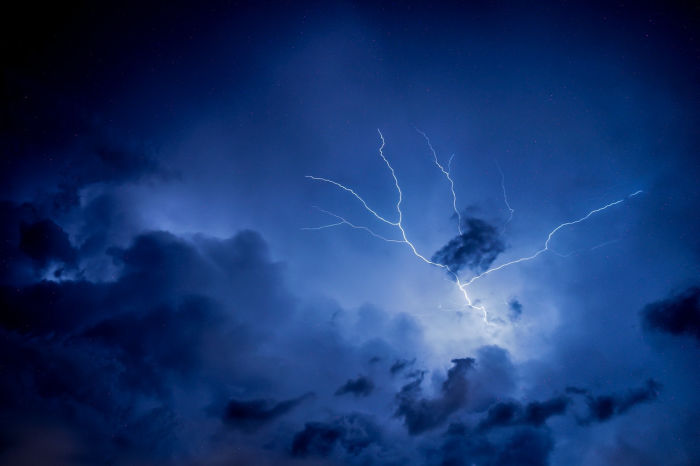The dark prophecies in our readings kick off the season of anticipation. They also help us find the message for our moment.
Advent and God’s liberation
Advent 1B | Isaiah 64:1-9

“O that you would tear open the heavens and come down,
so that the mountains would quake at your presence—“
Has it ever occurred to you that maybe we don’t want God to intervene in the world?
When we all pray for God to do something—heal our sickness, preserve the lives of our friends, make our crooked paths straight—we are asking for God to show up and change things.
And we do this on behalf of situations and institutions that seem broken and need fixing. We intercede in prayer (what we call intercessory prayer) on behalf of goodness. So that God will jump in and transform the world—even if it is merely targeted at Mom or Dad or brother or spouse.
We are quite literally saying to God: Go against the way of the world so that this one might be spared.
It is the most audacious act. And yet…we act like its no big deal. Like God jumping into our midst to sway the course of history is nothing. Like God can drop everything, stop a moving train and then we can just go Phew! That was close! and go back to normal.
We rarely confront the scale of our asking.
Or what this really means.
“O that you would tear open the heavens and come down,
so that the mountains would quake at your presence—
as when fire kindles brushwood
and the fire causes water to boil—
to make your name known to your adversaries,
so that the nations might tremble at your presence!“
When we ask for God’s presence, for the coming of God’s kin-dom, for God’s will to be done, are we really prepared for that possibility? For God to rend open the sky and overturn our power structures so that the people with little power gain most of it? Every outcast gains the power to cast out the majority if they chose to?
Are we prepared for this project?
I’ve gotta say, I’m not thrilled with the idea of putting people without experience in charge of all of our groups. So this vision the prophet offers us today freaks me out.
And yet…I also know that this is precisely what the ushering in of the kin-dom of God is about. It is about reorienting and transforming the world, its power structures, and how we relate to one another. About restoring the dignity of every human being and not primarily preserving our social hierarchies.
This is unsettling and scary.
It does mean some people lose power, wealth, and status. This isn’t something in which we can grow without growing pains.
At this year’s diocesan convention, our chapter of the Union of Black Episcopalians invited our diocese, its member congregations, and its people, to look at our history and see how our institutions have participated in building up of these socially segregated hierarchies.
A few months ago, I reminded us of the public lynching that took place in Terre Haute a century ago. An act of terrorism for which many are responsible and no one was punished.
Redlining created and reinforced neighborhood stratification that entrenched the power of white, upper class neighborhoods and encouraged the weakening of minority and lower class neighborhoods.
There is little doubt, given our congregation’s history, that we were a part of the covering up of this white supremacy.
History
And yet, our church made room for Syrian immigrants a century before we used the phrase “all are welcome.”
And Karen Rutherford, in her research into St. Stephen’s history, discovered that the first couple married with St. Stephen’s in 1840 were labeled as “negro.”
We have bravery in our congregational DNA. The bravery of Eugene Debs and capital punishment abolitionists.
We aren’t only the frozen chosen, whiskeypalians, the home of doctors and lawyers, or the butt of jokes. Especially jokes that haven’t been true in years.
St. Stephen’s is a community called to serve Christ.
Which means that we’re serving someone whose whole purpose is to direct us to God. To get us to change. To accept that change is necessary. So that we can see the change project God is doing!
This is at the root of our faith and our history. To long for change. And work for change. That is our tradition. It is the Spirit that fills our scripture, our psalms, and our prayers. Our sacred liturgy and our sacraments.
Turn! Away from the evil that corrupts our hearts!
Turn! Toward the love that fills us with new life!
Turn and walk a new path.
A New Path
So this great big ball of anxiety that comes with this picture: of God opening the sky and transforming the world: fills us with grief our hearts long to reject. It fills us with fear, our spirits claim to not have. This is our spiritual paradox!
But it is also why we gather as this school of love. To read our scripture, share in teaching, and learning Jesus’s Way of Love.
To see this providence, God coming into the world, for the blessing it is. That this imperfect world needs help. It needs some serious fixing.
And so do we.
We need this change. And we need to bring this change into our relationships, communities, and our country. Change full of grace, liberation, and new hope for God’s beloved community.
May the Spirit empower us along this liberating way of love.
